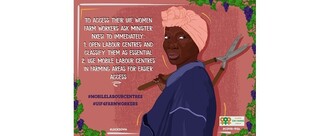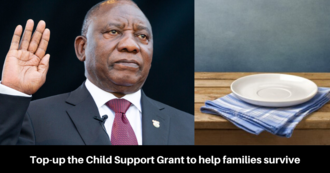- Featured
- Clean air
- Climate justice
- Consumer Rights
- Corporate Accountability
- Data access
- Early Childhood Development
- Economic fairness
- Education
- Electoral fairness
- Environmental justice
- Food justice
- Gender based violence
- Grants/social assistance
- Health
- Housing and infrastructure
- Industry interference
- Land Justice
- LGBTQIA+ rights
- Media/ information access
- Public transport
- Racism
- Reparations
- Safety
- Sanitation
- Service Delivery
- Sexual and Reproductive Rights
- Social justice
- Unemployment
- Womxn's rights/ gender equality
- Workers' rights
- More
-
#DocumentUs | Birth Registration and Certificate for All ChildrenSouth Africa is a signatory to a number of international conventions, which give right to every child to a name, nationality and immediate birth registration. This right is further enshrined in South Africa’s Constitution. Section 28 states that ‘Every child has the right to a name and nationality from birth’- regardless of nationality. As a signatory of the 1989 Convention on the Rights of the Child, South Africa is obligated to pass and implement laws for the realization of children’s interests, and also duty-bound to protect all children regardless of nationality or documentation status. Despite this, hundreds of children are still being denied this right and has detrimental impact on their everyday lives. A birth certificate is essential for every child. There are however hundreds of children without birth certificates. According to the Department of Basic Education, there are 998 433 undocumented children enrolled in public schools - mainly of whom are without birth certificates. Of these children, the majority (880968) are South African children whose parents, guardians or caregivers have not managed to secure birth certificates for them. Without these documents children are essentially not recognised by the State. This leaves them vulnerable to multiple risks, exploitations and exclusions including: accessing education, health, being excluded from the services of child protection (Social Welfare and Assistance) and are at risk of being stateless. Due to restrictive birth registration policies (including expensive DNA tests) hundreds of children are being denied their constitutional right to birth registration and nationality. Furthermore, as a result of corruption and limited operation capacity (closure of Refugee Reception Offices, Accessibility of Home Affairs offices, long application times, and shortened permit extensions) result in difficulties in applying and extending permits often resulting in expired permits which impact on children who need to be documented. The following organisations endorse this campaign: Refugee Social Service Refugee Rights Centre (NNMU) Lawyers for Human Rights Sophiatown Community Psychological Services1,396 of 2,000 SignaturesCreated by Abigail Dawson
-
REVIEW DISCRIMINATORY NRF Postgraduate Scholarship and Funding Framework 2021For an example chapter 9 of the NDP articulates our weakness by global standards in relation to national research and innovation systems, revealing amongst other things that there has been little increase to public research workforce, PhDs and research outputs. The honourable Minister will be acutely aware that the country’s global competitiveness requires drastic improvement and presently the distribution of research capacity in higher education institutions of learning is still skewed towards white institutions. We recognize that the racial history affected most facets of life, including but not limited to the labour market and education system. As result, the democratic government had a responsibility to reconcile the racial divide in relation to education and training system and labour market. It had to usher a wide scale of reforms of public policies meant to redress the racial past which characterised what scholars called ‘low skills regime’. Thus, we believe that the age restriction imposed on the NRF will have far reaching for South Africans especially the black who aspire to study up to doctoral level.5 of 100 SignaturesCreated by South African Youth Council
-
Tell Netcare, Life Healthcare Group and Mediclinic to protect healthcare workers and save livesFrom 2016 to 2019, Netcare, Life Group, and Mediclinic paid out more to shareholders than they made in profits. They paid out R 19 billion in payouts to shareholders (dividends and share buybacks) in the same period they only made R11 billion in profits. This means that even when these companies were making losses, the shareholders continued to gain millions in wealth. Over the years the pay-outs to shareholders have come at the cost of better healthcare outcomes and better working conditions for healthcare workers. These companies need to step up and show they care about more than shareholder profits. In this time of crisis, we must prioritise the health and wellbeing of all South Africans not just those who are wealthy. Tell Netcare, Mediclinic, and Life that they need to stop shareholder payouts (dividends and share buybacks) till 2022 to ensure that all available resources are prioritized for free regular testing for all healthcare workers, and free medical attention for healthcare workers who contract Covid-19 and adequate (PPEs) for all healthcare workers working in South Africa in public and private facilities. This petition is co-signed by: Young Nurses Indaba Trade Union(YNITU); Oxfam SA; Public Services International (PSI); National Union of Care Workers of South Africa (NUCWOSA); Treatment Action Campaign (TAC); South African Federation of Trade Unions (SAFTU), and Amandla.mobi. Reference: A survey was conducted by Oxfam South Africa. Oxfam South Africa surveyed 166 healthcare workers for a month during the period of the 27 July 2020 to 27 August 2020 using two trade union’s databases: The Young Nurses Indaba Trade Union (YNITU) and National Union of Community Healthcare Workers of South Africa (NUCWOSA). The survey was sent via Whatsapp messages directly to the healthcare workers on the database. The survey was sent to healthcare workers in Gauteng, Western Cape, and the Eastern Cape. The survey respondents were mostly nurses (90%), permanent workers (88 %), 86 % in the public sector, and 10 percent in the private sector. A note on the low response rate from private-sector employees is that some respondents that they and their colleagues feared intimidation for participating in the survey. Figures from Department of Health South Africa 13 August 2020 and correct as of 21 August 2020. https://bhekisisa.org/resources/2020-08-14-health-workers-make-up-one-in-20-of-covid-19-cases-in-south-africa-new-data-shows/ Oxfam South Africa. (2020). The Right to Dignified Care Work is a Right to Dignified Health Care For All. https://www.oxfam.org.za/wp-content/uploads/2020/07/Oxfam_Care4Carers-Report_Final_20200701.pdf431 of 1,000 SignaturesCreated by Oxfam South Africa

-
#ApartheidBanks: Justice for Apartheid Economic crimeAn important component of accountability is combating impunity and dismantling the networks and institutions responsible for corporate crime, as there is a link between the institutions that perpetrated these crimes in the past and those responsible for state capture today. Holding these instrumental actors to account, including through prosecution, is a critical step to restoring the Rule of Law in our country today. The Commissioners of the Truth and Reconciliation Commission (TRC) have issued a separate letter to Adv. Shamila Batohi calling for the NPA to act on this evidence. We recognise that the TRC, in its final report in 2003, called on the NPA to pursue perpetrators not awarded amnesty through a process of ‘bold prosecutions’ of apartheid crimes. This has not happened, in large part because of political interference in the NPA’s work under previous administrations. It is for this reason that prosecutions against these economic criminals and other apartheid-era human rights violators would send a clear signal that the NPA stands firm against impunity. South Africa faces many pressing problems today, including the profiteers of Covid-19 relief and the legacy of recent state capture networks. The corrupt corporations and politicians who profit from these deals have caused pain and suffering to the South African people. They have made us poorer, more unequal and taken away jobs. The legacy of apartheid-era economic criminals is no less severe and important and we demand that the NPA prosecutes these actors without fear or favour. This is a necessary and urgent step towards social justice. The South African Coalition for Transitional Justice (SACTJ) - endorsed by friends of SACTJ and the following organisations: 1. Centre for Applied Legal Studies (CALS) 2. Centre for the Study of Violence and Reconciliation (CSVR) 3. Foundation for Human Rights (FHR) 4. Human Rights Media Centre (HRMC) 5. Institute for Justice and Reconciliation (IJR) 6. Khulumani Support Group (KSG) 7. (Open Secrets) 8. South African History Archives (SAHA) 9. Violence Prevention Agency (VPA) Additional civil society endorsements: 10. Alternative Information and Development Centre (AIDC) 11. Corruption Watch (CW) 12. International Labour Research and Information Group (ILRIG) 13. Lawyers for Human Rights (LHR) 14. Legal Resources Centre (LRC) 15. My Vote Counts (MVC) 16. Organisation Undoing Tax Abuse (OUTA) 17. Public Affairs Research Institute (PARI) 18. Section27 (S27) 19. Southern African Faith Communities’ Environment Institute (SAFCEI) 20. Southern Africa Litigation Centre (SALC) 21. Shadow World Investigations (SWI) 22. Unpaid Benefits Campaign (UBC) [1] https://www.opensecrets.org.za/site/wp-content/uploads/Apartheid-Banks.-NPA-Docket.-Annexures-1-26.pdf [2] https://www.opensecrets.org.za/apartheidbanksdocket/302 of 400 SignaturesCreated by Open Secrets ZA

-
UNIVERSITIES TO ISSUE OWING STUDENTS GRADUATE CERTIFICATES1. This will help many students enter the job market. 2. Universities' financial sustainability will improve as more graduates get jobs and start paying-off their debts. 3. This will also reduce the social burden on the government of giving out grants as more people are employed. 4. This will contribute to the NDP and the GDP of South Africa.8 of 100 SignaturesCreated by Nat Turner
-
Basic Income Support for people aged 18 to 59 NOW!The COVID-19 pandemic is a global economic and humanitarian crisis. South Africa’s already dire economic situation, with the triple challenges of systemic poverty, unemployment and inequality, has become bleaker. The national lockdown has exacerbated structural unemployment, led to increased food prices and placed an immense strain on household resources. The pandemic has compounded food insecurity and hunger is widespread. Almost half of the population is chronically poor. For the foreseeable future, the economy in its current configuration will not absorb all the unemployed. Section 27 of the Bill of Rights in the South African Constitution makes provision for Social Security, “including appropriate social assistance if they are unable to support themselves” [2]. Income support in the form of social grants is provided to approximately 18 million of the most vulnerable: the elderly, children and people with disabilities. However, able-bodied people aged 18 to 59 with no or little income are excluded from the social assistance grants. The South African government must uphold the United Nations, International Covenant of Economic, Social and Cultural Rights [3], which it ratified. The Covenant forms the cornerstone of international human rights law. Key recommendations made are that the South African government “ensure that those between the ages of 18 and 59 with little or no income have access to social assistance; consider the possibility of introducing a universal basic income grant”; and “raise the level of government social assistance benefits to a level ensure an adequate standard of living for recipients and their families”. The government’s Social Relief of Distress package introduced a monthly R350 COVID-19 Social Relief of Distress (SRD) grant for six-months for the unemployed, and CSG increase of R500 to be given per caregiver monthly for five months until October 2020. While most grants benefitted from a monthly top-up of R250 for six months, the Child Support Grant was increased by R300 for the month of May only, and then only given per caregiver. Both new social grants are inadequate to cover basic food, energy sources and transport, as well as the additional cost of complying with hygiene protocols during the pandemic. The cost of the monthly basket of staple foods has increased by 6% to R3 413,14 for the period March to July 2020 for the average household. Furthermore, the online platform for applications and dated verifying databases continue to result in serious access challenges for those eligible for the COVID-19 SRD grant. Income support for those aged 18 to 59 with no or little income is a critical step towards the government’s implementation of a universal basic income grant to ensure that all who live in South Africa have an adequate standard of living. The following organisations endorse this campaign: Act Ubumbano, Ahmed Kathrada Foundataion, Albert Luthuli Human Rights Advice Centre, Alternative Information and Development Centre, Archdiocese of Durban Justice and Peace Commission, Beaufort West Advice Office, Bench Marks Foundation, Bertha Centre for Social Innovation and Entrepreneurship Graduate School of Business, Bohlabela Advice Centre, Botshabelo Unemployment Movement, Cancer Alliance, Cash Transfers Working Group of the C19 Peoples Coalition, Centre for Applied Legal Studies, Children in Distress (CINDI), Community Advice Offices South Africa (CAOSA), Consortium for Refugees and Migrants in South Africa (CoRMSA), Congress of South African Trade Unions, Cooperative and Policy Alternative Centre (COPAC), Democracy Development Program, Dirang Ka Kagiso ( Community Home Based Care), Dirang Ka Kagiso ( Wellness Center), Dullah Omar Institute, Environmental Monitoring Group, Equal Education, Heidelberg Advice Office, Hillcrest Aids Centre Trust, Institute for Economic Justice, Institute for Poverty, Land and Agrarian Studies at the University of the Western Cape, Interchurch Local Development Agency, International Labour Research and Information Group (ILRIG), Jersey Farm Advice and Information Centre, Ketekani Community Project, Kgothatsanang organisation, Khutsong Youth Friendly Services, Advice Center, Kwafene Advice office, Lawyers For Human Rights, Legal Resources Centre, Mariann Coordinating Committee (MCC), Matlosana Development Forum, Middelburg Development and Advice Office, Muslim Judicial Council, Ndifuna Ukwazi, Open Secrets, Organised for Work, Probono.org, People's Health Movement, Public Affairs Research Institute (PARI), Public Service Accountability Monitor (PSAM), Right2Know, Scalabrini, Riversdale Advice and Community Development Agency, Section 27, Sexual and Reproductive Justice Coalition (SRJC), Shayisfuba Feminist Collective, Sisterhood Movement, Social Change Assistance Trust (SCAT), Social Justice Coalition, Social Work Action Network South Africa, South African Domestic Services and Allied Workers Union (SADSAWU), South African Food Sovereignty Campaign, South African NGO Coalition (SANGOCO), Southern African Social Policy Research Institute, Standerton Victim Empowerment and Advice Office, Studies in Poverty and Inequality Institute (SPII), Ubuntu Rural Women and Youth Movement, Triangle Project, Western Cape Forum For Intellectual Disability, Women Hope for the Nation, Women on Farms Project, amandla.mobi, Vianney Child and Youth Care Centre, Women's Legal Centre, Workers World Media Productions (WWMP), Zenzeleni Project [1] Cost of household food basket rising, ENCA June 2020 [2] https://www.justice.gov.za/legislation/constitution/SAConstitution-web-eng-02.pdf [3] https://www.ohchr.org/en/professionalinterest/pages/cescr.aspx328,866 of 400,000 SignaturesCreated by Black Sash

-
Public land must benefit all Capetonians - Object to the King David Mowbray Golf Course LeaseOver the last couple of weeks, the City of Cape Town has said that it is experiencing an unprecedented increase in poor people occupying vacant land. The vast majority of people occupy land out of necessity- they have nowhere else to go [3]. And a huge part of why people have nowhere else to go is because the state – at all levels – has failed to satisfy the need for housing or redistribute well-located land. This failure has exacerbated spatial inequality in Cape Town – which is the most spatially divided city in the country in terms of race and class. The City has consistently blamed this spatial injustice on the lack of well-located land that could be used for affordable housing. But the City often misses the most obvious solution: it already owns massive pieces of land in well-located areas. Land that is unused or not being used to its full potential, that could provide ample space for affordable housing and reverse the City’s apartheid legacy. Last year, Ndifuna Ukwazi released a research report exposing how the City is disposing of the public land it owns by leasing it to private organisations at massively discounted rentals [4]. This land includes parking lots that are empty for up to 18 hours a day, bowling greens with very few members, and massive golf courses that provide enjoyment to only a few wealthy residents on the weekends. This is an inefficient, exclusive and unsustainable way to deal with well-located public land. Surely this land should be put to better use? While the City has increased the rental tariff it charges for sporting purposes, which means that it will charge King David Mowbray Golf Course is R11 500 per year (as opposed to the R1 095 a year that it plans on charging Rondebosch Golf Club), this misses the point. Aside from still being an incredibly low rental for this land, it does not address the City’s obligation to redistribute public land. This land-use does not align with the City’s own inclusive development priorities and fails to give effect to the Constitution’s commitment to housing and equitable access to land. The redevelopment of the land leased to the King David Mowbray Golf Course offers a vital opportunity to act on a new vision for a just and more equal Cape Town. The land could be used to create an inclusive, environmentally sensitive suburb, with a positive urban environment and inclusive green spaces that bring people together rather than tear them apart. If we are serious about addressing Cape Town’s apartheid legacy, we need to make our voices heard. Object to the lease renewal of this prime public land that should be used for affordable housing before 25 August 2020. Ndifuna Ukwazi has put together this progressive submission you can use when sending in your own objection. We invite you to use this as a draft and tailor it to make your voice heard. If enough of us send in our objections we can stop the City of Cape Town from renewing the King David Mowbray Golf Course lease. [1] https://awethu.amandla.mobi/petitions/cheap-rent-for-the-rich-object-to-the-rondebosch-golf-course-lease-3 [2] City of Cape Town. 24 July 2020. Lease: Erven 29453, 29449, 29455, 32716 Cape Town, Raapenberg Road, Mowbray. Cape Argus. Available: https://jmp.sh/II39Y3i. [3] Bosch, Hazell and Clark. 2020. Making Room for Housing. Edited version published by Weekend Argus and IOL News on 8 August 2020. Full version available: https://jumpshare.com/v/ZMRTKEYftZpoCK8joDOe [4] Ndifuna Ukwazi. 2019. Cape Town’s Failure to Redistribute Land. Available: https://drive.google.com/file/d/1Pxly1G47qbC79l58Oss4vKvvK4AO71M-/view1,617 of 2,000 SignaturesCreated by Ndifuna Ukwazi

-
We demand transparency from the Solidarity FundIt is unclear whom the funds have been allocated to, making it hard to know if the money is being misused for profiteering or personal reasons by the handler, and thus making it even harder to hold anyone accountable if the funds are being misused. Now more than ever is the time to be transparent and accountable to people who are affected negatively by the lockdown. We need to know that the funds are being spent on people who need it the most and that the money is being distributed fairly and to responsible beneficiaries. [1] https://www.businesslive.co.za/bd/economy/2020-06-22-solidarity-fund-approves-r14bn-for-covid-19-support/ [2] https://www.news24.com/news24/southafrica/news/feel-good-cape-town-domestic-worker-runs-food-aid-programme-for-neighbours-in-her-free-time-20200626 https://www.dailymaverick.co.za/article/2020-06-12-they-are-too-poor-to-eat/ https://www.groundup.org.za/article/feeding-poor-people-national-government-has-failed/ [3] https://www.groundup.org.za/article/residents-of-kliptown-where-the-freedom-charter-was-signed-still-dont-have-decent-toilets/ [4] https://solidarityfund.co.za/media/2020/06/22-06-2020_Update_Solidarity_Fund.pdf437 of 500 SignaturesCreated by Tlou Seopa
-
Pledge Solidarity with Eastern Cape Community Health WorkersWe can no longer tolerate a situation where our state, far from being an example of good labour practice, is responsible for the casualisation of work and the exploitation of the mainly women workers who are leading grassroots healthcare provision in our communities. CHW’s demands, in the Eastern Cape and in the rest of the country, for secure employment and a living wage must be met, with immediate effect. We note the recent permanent employment of CHW in Gauteng as a step in the right direction and hereby demand an end to regional disparities in the pay, recognition and integration of CHW into the workforce of the National Department of Health.839 of 1,000 SignaturesCreated by Anneleen De Keukelaere
-
Decriminalise the Lockdown Regulations to decrease the number of people living with criminal recordsPeople who are being charged with offences under the current Lockdown Regulations are (sometimes unwittingly) being issued with criminal records. This is an issue that is affecting all members of society, and will have negative consequences far beyond the end of the Lockdown. Predictably, the most vulnerable and disadvantaged groups in society will be disproportionately impacted. We would like to collect information about people's experiences of being issued citations (fines) for violations of the COVID-19 Lockdown Regulations, to understand how the Regulations have been enforced and its impact on people in South Africa. If you are willing to share your experience, please fill out this anonymous questionnaire: https://forms.gle/eRSZFouw2LeNfaiJ61,075 of 2,000 SignaturesCreated by Criminal Records Coalition
-
Stand with struggling farm workers. Reopen Labour Centres + class them as essential servicesWith the harvest season on most grape and wine farms having ended in March, thousands of seasonal farm workers, the majority of whom are women, urgently need to apply for their unemployment benefits. However, because Labour Centres have been closed due to the Covid-19 lockdown, workers are unable to process their UIF applications. Online applications are not feasible for most farm workers who do not have access to computers, smartphones and data.496 of 500 SignaturesCreated by Colette Solomon
-
Tell Government we urgently need a Child Support Grant increase of R500 for the next 6 monthsThe lockdown is important to contain the virus, but it will increase poverty and food insecurity: International experience suggests that a lockdown is the best response to the virus from a public health perspective, but the economic impacts are devastating for South African households. South Africa already has very high rates of poverty, unemployment and inequality, and the effects of lockdown on work and earnings threaten to exacerbate all these dynamics. A team of experts commissioned to work on an economic response to Covid-19 has been modelling the possible effects of the lockdown on the informal sector specifically, and the spin-off effects for poverty levels. They estimate that, for households that rely on income from the informal labour market, food poverty rates could more than double over the three weeks of the lock-down period. As the depth of poverty increases, more people will go hungry, including millions of children. Other forms of support have been withdrawn. Before the lockdown, over 10 million children were receiving nutritious meals through the school nutrition programme and early childhood development programmes. The closure of schools and early childhood development facilities means families with children will need to provide more nutritious meals. Pre-regulation food price increases have swallowed families’ budgets and forced shoppers to buy less nutritious food: A project that monitors food prices found that the cost of a low-income household food basket increased substantially over the first three weeks of March, as the pandemic unfolded in the country. Over the whole month, the cost of the food basket increased by 7% or R220. This increase alone is equivalent to half the value of the monthly child support grant. The same report notes shifts in purchasing patterns to less nutritious food. Social grants are an extremely effective mechanism for protecting children and families against the effects of poverty: By the end of March 2020, 84 countries had introduced or adapted social protection and jobs programmes in response to Covid-19. The most widely used intervention was social assistance (non-contributory cash transfers). SASSA cannot enrol new beneficiaries into the social grant system during lockdown because the required verification and biometric requirements cannot be completed. Even after lock-down, the need for social distancing will remain, making the full functioning of SASSA offices for new applications unlikely. Therefore the quickest and simplest way to channel much-needed cash into poor households is via existing beneficiaries. The child support grant (CSG) is well established. It is by far the biggest grant in terms of numbers, reaching 12.8 million children – nearly two-thirds of all children in South Africa. It is received every month by over 7 million adult beneficiaries and contributes to the income of nearly 5.7 million households. Although child support grants are meant to be spent directly on the children to whom they are allocated, they effectively become part of household budgets and help to support entire households. Therefore, increasing this grant is likely to benefit other members of the household. Now that lock-down regulations have been amended to allow informal traders of food to continue to trade, extra cash in the hands of CSG beneficiaries will not only increase the ability of poor households to buy nutritious fresh produce but will also help to reduce the congestion in taxis and at big retailers; and stimulate the local economies of townships and rural areas. The economic insecurity and poverty-related stresses and anxiety caused by the pandemic directly contribute to increases in violence against women and children. In addition to reducing hunger, economic strengthening will be protective of women and children. In addition to increasing the CSG amount, the following measures should also be taken: 1. Vulnerable households not already receiving grants, including unemployed adults in households without social grants also need access to income support. Innovative mechanisms to reach these individuals and households need urgent attention. 2. More cash without addressing congestion at big retailers, in taxis and social grant payment queues is not effective. We, therefore, recommend that SASSA re-structure its payment system to ensure that grants are transferred into the accounts of beneficiaries in a staggered manner. 3. Selected highly nutritious foods should be subsidised. This measure is urgent and we the undersigned call on you to address this critical issue at the next meeting of the Cabinet or National Command Council. This campaign/letter is endorsed by: Children’s Institute (UCT), United Nations Fund for Children South Africa, South African Medical Research Council, DST-NRF Centre for Excellence in Food Security, Centre for Child Law (UP), Black Sash, Children in Distress (CINDI), Equal Education, Equal Education Law Centre, Rural Health Advocacy Project, Institute for Security Studies, National Association for Child Care Work, Section27, Public Service Accountability Monitor, Institute for Economic Justice, Alan J Flisher Centre for Public Mental Health, Bulungula Incubator, South African Civil Society for Women’s, Adolescents and Children’s Health, Umduduzi Hospice Care for Children, Amandla .mobi, Give a Child a Family, Teddy Bear Foundation, Jelly Beanz Inc, Child Health Priorities Association, Preschools 4 Africa, Association for the Education & Care of Young Children, OXFAM South Africa, Ilifa Labantwana, National Early Childhood Development Alliance, Child Welfare South Africa, Institute for Poverty, Land and Agrarian Studies (PLAAS UWC), Nal’ibali Trust, Protective Behaviours Southern African, Cotlands, Africa Reggio Emilia Alliance.573,355 of 600,000 SignaturesCreated by Children's Institute, a member of the Budget Justice Coalition

.png)
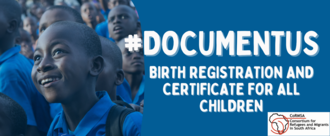.png)
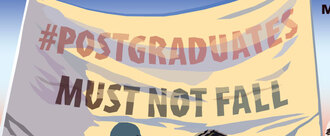
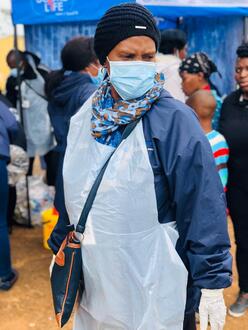.jpeg)
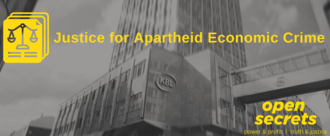
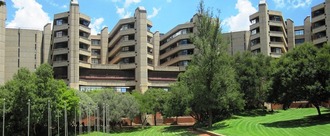
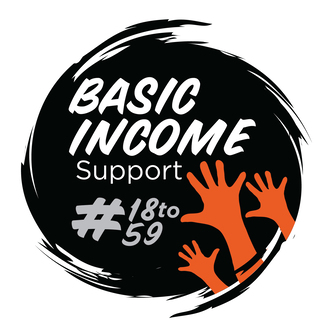
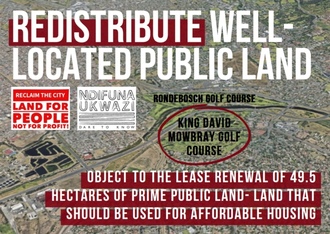
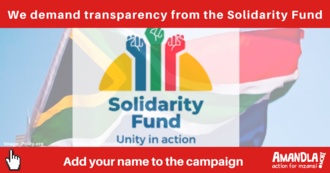

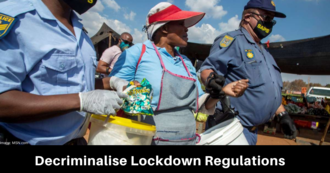.png20200618-20578-rqozqx.png)
